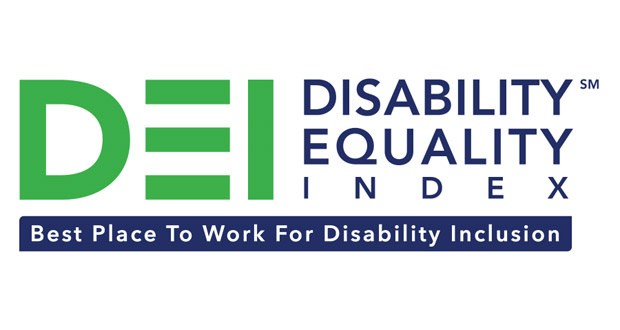ROCKVILLE, Md.—Results from the annual Disability Equality Index (DEI) revealed 126 companies as the Best Places to Work for People with Disabilities for prioritizing the inclusion of people with disabilities. The DEI is a joint initiative between American Association of People with Disabilities (AAPD) and the US Business Leadership Network (USBLN). The national, annual benchmarking survey scores companies on a 100-point scale for their disability inclusion policies and practices. Recognition is reserved for businesses that have scored 80 or above on the DEI, and the companies that made this year’s list represent 25 business sectors and a combined 7.8 million employees.
In the lodging industry, Choice Hotels was among the “Best Places to Work for People with Disabilities” in 2018. “This designation as a ‘Best Places to Work for People with Disabilities’ builds upon previous accolades Choice Hotels has received for its exceptional corporate culture and reflects our ongoing commitment to ensuring all our associates feel welcome, wanted, and respected,” said Patrick Cimerola, chief human resources officer, Choice Hotels. “Our employee resource group ENABLE has been especially helpful in achieving this recognition by evolving policies and practices that align with our mission to create an inclusive work environment.”
Choice Hotels supports nine different employee resource groups designed to facilitate engagement among associates and help shape the company’s culture and business objectives, including ENABLE, an organization created to increase awareness, access, and advocacy for people with disabilities at Choice.
The DEI measures key performance indicators across organizational culture, leadership, accessibility, employment, community engagement, support services and supplier diversity. In its fourth year, the Index has experienced nearly a 32 percent increase in year-over-year participation, signaling disability inclusion is on the rise across industries. Seventy percent of businesses participating in the 2017 DEI chose to also participate in 2018, utilizing the tool as multi-year benchmarking roadmap.
“AAPD is thrilled to see increased participation in this year’s DEI. The commitment to disability inclusion is becoming a priority for more and more corporations,” said Helena Berger, president and CEO of AAPD. “While we have made great strides since the passage of the Americans with Disabilities Act, the number of disabled individuals getting hired has not significantly increased. The DEI was created to help advance employment opportunities and outcomes for people with disabilities.”
The aggregate results and efforts of participating DEI businesses highlight key industry trends and areas for improvement. According to this year’s Index, 94 percent of DEI companies reported having a senior executive (within the first two levels reporting to CEO) who is internally recognized as being a person with a disability and/or as an ally for people with disabilities. Seventy-two percent of DEI companies had expenditures with certified disability-owned businesses and/or certified service-disabled veteran-owned businesses.
The Index indicated several opportunities to strengthen disability inclusion. For example, just 55 percent of DEI businesses have a company-wide external and internal commitment to digital accessibility. Additionally, 44 percent of 2018 DEI companies make all job interview candidates aware of the option to request an accommodation(s) for the interview. Also, only 34 percent of DEI businesses have a public smart-phone app that is audited for accessibility.
“We applaud those companies that choose to take the DEI year after year and truly commit to advancing disability inclusion,” said Jill Houghton, president and CEO of USBLN. “Although we are far from true inclusion of people with disabilities across the enterprise, the DEI signals corporate America is recognizing inclusion as a competitive edge and beneficial for all.”











